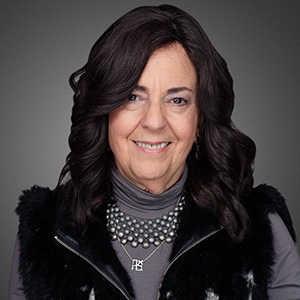Opportunities Abound

Her smile, warmth, and interest always made me feel that I was her best friend

Perhaps you’re at the stage where your career of many decades — whether you were a mother and homemaker, had an occupation, or were involved with the community — is somewhat diminished, either because your children have grown up, you’ve formally retired, or you’ve ended your involvement with a particular institution or organization.
The absence of these commitments provides an opportunity to “follow your heart.” Now can be a time to pursue an interest in a totally new area as a second career, like writing a book after many years of teaching, going to shiurim, spending more time with the extended family, planting vegetables in your backyard, or finally learning how to knit or do needlepoint. Options abound for a whole new source of fulfillment. There are so many opportunities to explore, experience, or share with others.
Recently, I lost a friend, someone whose smile, warmth, and interest always made me feel that I was her best friend. Her name was Shifra, and I’d been davening for a refuah sheleimah for Shifra bas Malka Rivka during Shemoneh Esreh for several weeks. It was only after her levayah that I heard that those tefillos were no longer needed, that the Dayan HaEmes had passed the sentence and my friend had left us.
Shifra always had a smile, always gave a chuckle, and had a genuine concern for what was happening in my life. When, after several weeks or months of little contact, we were serendipitously seated next to each other at the wedding of a mutual friend’s daughter, our conversation flowed as if we had just spoken earlier that day. She was that kind of friend to everyone.
It didn’t come as a surprise that everyone I spoke to in the days after her passing experienced the same sense of having lost a very close and dear friend. “She never missed visiting when my sister was my guest,” commented one friend. “I always felt that she was so interested in what was happening in my family and shared my simchahs with so much joy and my worries with so much concern,” said another.
Shifra was totally selfless. Other people’s needs were paramount to her, hence she worked at an organization that deals with children with disabilities. When I was writing my book in memory of my son Saadya, she put so much effort into helping me gather material and expressed so much interest in the book’s success.
As the ultimate Jewish mother, every Shabbos, rain or shine or cold, Shifra either donned a warm coat or ignored the heat and walked two miles to the shul where her son was the rav. She went first thing on Shabbos morning and, after davening was over, walked the two miles back to her home.
My children live near that minyan, and I sometimes walked there, too. Whenever I saw Shifra, she asked me to join her on the walk to her son’s shul. I certainly loved her company and thought it would be wonderful to walk the two miles together, but Shifra left early to be on time for davening, and well, my Shabbos morning extra cup of coffee while perusing the latest publications was an indulgence I didn’t want to forgo.
Every time we met, I would say, “Next week, for sure, Shifra, I’d love to walk to shul with you.”
Alas, that’s no longer an option.
That missed opportunity reminds me of another. Shortly after we were married, the Hebrew University of Jerusalem offered my husband a position as a permanent faculty member. The offer came with an apartment in Yerushalayim. I didn’t feel ready for that move “upward” at the time, and we turned the offer down.
One of my husband’s colleagues accepted the offer, made aliyah, and raised his family in Yerushalayim, where they still reside. They have grandchildren who are very much Israeli, and sometimes, when we visit them, I fall prey to a “could’ve, should’ve, but didn’t” moment.
I write this piece at a desk in a very pleasant house that is not in Yerushalayim Ir HaKodesh. I wonder, is this what the poet Robert Frost was referring to when he wrote “The Road Not Taken”? Is it, indeed, about opportunities not taken, paths not followed?
Yes, all is bashert. And yet when the One Above offers us opportunities — if only we’d recognize and take advantage of them.
(Originally featured in Family First, Issue 931)
Oops! We could not locate your form.


